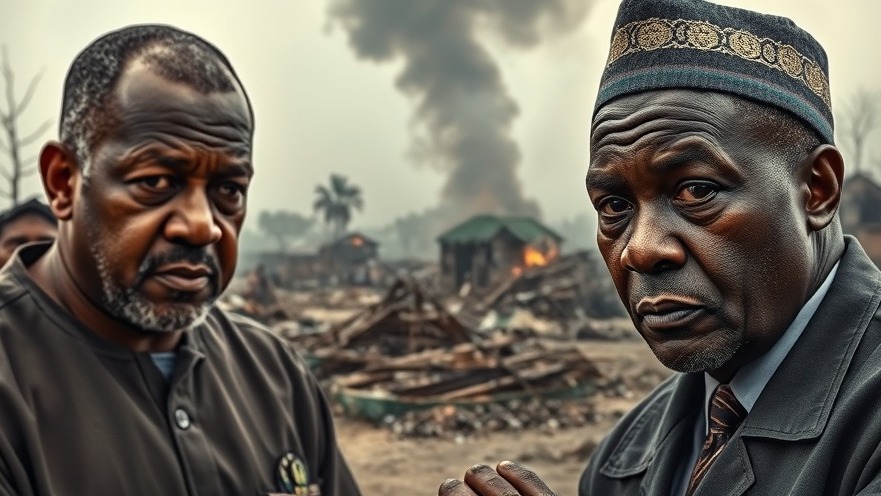
The Devastating Tragedy in Benue State
On a day that forever altered the landscape of Benue State, a staggering loss of over 200 lives from violent clashes made headlines and reverberated throughout Nigeria and the broader African continent. The urgency surrounding this situation triggered a prompt visit from President Bola Ahmed Tinubu. His presence symbolizes not just condolences but a necessity for immediate action to address the complex web of violence, inter-communal strife, and governmental accountability.
In 'Tinubu Visits Benue: Urgent Action Needed After 200 Lives Lost', the severe implications of recent violence in Benue State are explored, prompting a deeper look into the necessary actions needed to prevent further tragedy.
Understanding the Background of the Violence
The conflict in Benue isn't just an isolated incident—it's a culmination of years of socio-political tension. Land disputes, historically rooted in ethnic rivalries, have reached a boiling point, exacerbated by economic hardships and limited governmental presence. As political analysts have pointed out, understanding the historical context is critical to devising effective solutions to prevent further bloodshed.
Societal Impact: A State in Mourning
The loss of life in Benue has left families shattered and communities mourning. The emotional toll is staggering, as cherished lives are replaced by fear and insecurity. President Tinubu’s visit highlights not only the need for national unity but also a call for socio-political reformation that caters to the basic needs of its citizens. This yearning for security and justice resonates deeply, especially within a country that continuously grapples with violence.
The Path Forward: A Call for Leadership and Responsibility
The onus falls heavily on the leadership to not only condemn the violence but also implement meaningful policies. The involvement of state and federal officials is crucial in formulating strategies that prioritize healing and reconciliation across communities. The future of peace in Benue state hangs on the actions they take in the wake of this tragedy.
Lessons from Around the Globe: Humanizing Policy Decisions
Elsewhere in the world, nations have faced similar trials, such as South Africa’s transition from apartheid to a democracy aimed at inclusion. These cases illustrate that reconciliation is a lengthy journey, requiring commitment and systematic efforts to mend the fabric of society. Benue’s situation serves as an urgent reminder that conflict resolution is not merely a governmental responsibility; it requires community involvement and a commitment to human dignity.
A Focus on Policy Reformation
The Nigerian government’s response to this crisis must go beyond mere statements and condolences. There needs to be a tangible shift in policy, particularly to ensure the safety and security of all Nigerians—from the farmers to the communities affected by land disputes. This must include engaging local leaders and utilizing grassroots organizations to cultivate trust and dialogue among conflicting parties.
As we move forward, the government must invest in education, economic opportunities, and equitable land distribution to stem the tide of violence. Failure to address these concerns may result in further tragedies that could destabilize Nigeria.
Conclusion: The Urgency for Proactive Solutions
In light of the recent collective trauma experienced in Benue State, President Tinubu's visit acts as a clarion call to action. The urgent sanative measures must prioritize community engagement and address the root causes of conflicts. The very fabric of society hinges on stability, and the resolution of ongoing tensions is indispensable.
 Add Row
Add Row  Add
Add 


Write A Comment